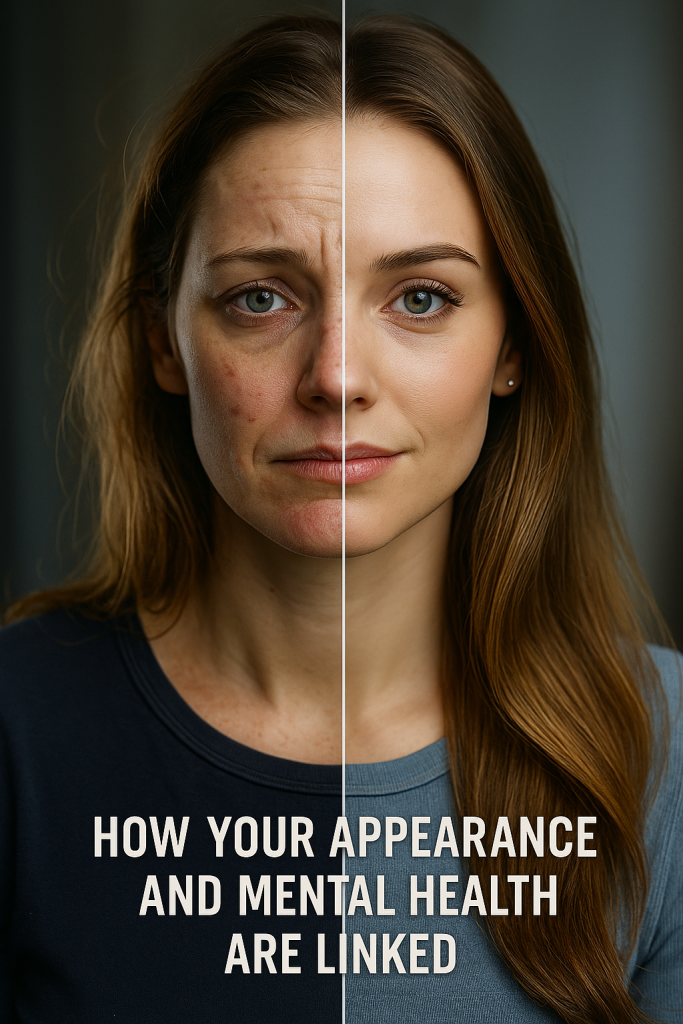Looking to protect those precious peepers of yours? Wondering if that daily cup of joe is doing more harm than good? Well, here’s the lowdown on coffee and its effects on your eyes. Get ready to sip on some eye-opening facts about tear production, glaucoma, eyelid twitching, cataracts, retinal disease, and how that beloved caffeine might just be a sight for sore eyes. So sit back, relax, and let’s spill the beans on whether coffee is a friend or foe to your vision.
The Effects of Caffeine on Tear Production
If you consume caffeine, it can increase tear production, which may be beneficial for individuals with dry eye syndrome. So, does coffee improve eyesight? The answer lies in the effects of caffeine on tear production. Two placebo-controlled studies have shown that caffeine actually increases tear production. Participants who were given caffeine produced more tears compared to those who were given water or a placebo. This means that consuming coffee, which contains caffeine, can potentially improve your eyesight by increasing tear production and providing relief for dry eyes. While more research is needed to fully understand the relationship between caffeine and eyesight, these findings suggest that moderate coffee consumption could have positive effects on tear production and overall eye health.
Caffeine and Its Relationship to Glaucoma
Limiting your caffeine consumption may help protect you if you have a high genetic risk of glaucoma. While coffee is often enjoyed for its taste and energy-boosting properties, it’s important to consider its impact on eye health. Caffeine, found in coffee, has been shown to temporarily increase eye pressure, which can be detrimental for individuals at risk for glaucoma. A recent study revealed that caffeine consumption can triple the risk of glaucoma in those with a family history or genetic predisposition. By reducing your caffeine intake, you can potentially lower your risk and safeguard your eyes from this sight-threatening condition. Remember to consult with your healthcare provider for personalized recommendations regarding caffeine consumption and protecting your vision.
| Effect | Description |
|---|---|
| Increased Risk of Glaucoma | Caffeine triples the risk of glaucoma in individuals with a genetic predisposition or family history |
| Limiting Caffeine Consumption | Reducing caffeine intake helps protect against glaucoma for those at high genetic risk |
| Consult Healthcare Provider | Seek professional advice on personalized recommendations regarding caffeine consumption and eye health |
Incorporating these keywords: is coffee good for your eyes, coffee in eyes, can coffee improve vision, caffeine eyes, coffee improves vision.
Eyelid Twitching and Caffeine Consumption
Lowering your caffeine consumption can help alleviate eyelid twitching, a condition characterized by involuntary fluttering or twitching of the eyelids. Here are some important points to consider regarding the effects of coffee on eye health:
- Coffee is not inherently bad for your eyesight.
- Some studies suggest that coffee may have protective effects on eye health.
- Drinking coffee, which contains caffeine, has been associated with a lower risk of developing cataracts and certain retinal diseases.
- However, excessive caffeine consumption can contribute to eyelid twitching or myokymia.
- It’s important to find a balance when it comes to caffeine intake and listen to your body’s response.
Remember that everyone’s sensitivity to caffeine may vary, so it’s essential to pay attention to how your body reacts. If you experience persistent or severe eyelid twitching, it may be beneficial to consult with a healthcare professional.
Can Coffee Help Prevent Cataracts
Drinking moderate amounts of coffee, which contains caffeine, has been associated with a reduced risk of developing cataracts. However, it’s important to note that coffee does not cure blindness. While studies have shown a potential link between coffee consumption and a lower risk of cataracts, it doesn’t mean that drinking coffee will prevent or cure blindness caused by other eye conditions.
Cataracts are characterized by the clouding of the lens in the eye, leading to vision impairment. The antioxidants found in coffee, such as chlorogenic acid, may help counteract oxidative stress and protect against cataract development. But it’s crucial to understand that this association is not a guarantee of preventing or curing blindness caused by other factors like glaucoma or retinal diseases.
If you’re concerned about your eye health or have existing eye conditions, it’s best to consult an ophthalmologist who can provide personalized advice and treatment options tailored to your specific needs.
Caffeine’s Potential Benefits for Retinal Disease
Caffeine may potentially offer benefits for individuals with retinal diseases. Here are some potential ways that caffeine could be beneficial:
- Caffeine’s antioxidant properties found in coffee can help prevent or slow down retinal damage caused by age-related macular degeneration and diabetic retinopathy.
- Drinking more than two cups of coffee a day has been shown to lower the odds of developing diabetic retinopathy.
- Coffee’s anti-inflammatory properties may reduce the risk of other diseases like Parkinson’s, diabetes, and Alzheimer’s, which can also impact eye health.
- The chlorogenic acid (CGA) present in green coffee beans has been associated with neuroprotection and may prevent retinal degeneration.
- Further research is needed to fully understand the mechanisms and benefits of caffeine on retinal health.
Coffee and Its Impact on Eye Health
Now that you know about caffeine’s potential benefits for retinal disease, let’s talk about coffee and its impact on eye health. You might be wondering, “Is coffee good for my eyes?” Well, it turns out that coffee consumption may actually protect against deteriorating eyesight and blindness. Green coffee beans contain chlorogenic acid (CGA), which has been associated with various health benefits. CGA has shown to be a powerful neuroprotectant, especially for the retina, a thin layer at the back of your eye that is susceptible to diseases caused by oxidative stress. Coffee, particularly CGA, may help prevent retinal degeneration. In fact, studies have shown that CGA reduces cell damage in retinal ganglion cells (RGCs) exposed to hypoxia and prevents their death. So go ahead and enjoy your cup of joe while potentially safeguarding your eye health!
The Neuroprotective Power of Chlorogenic Acid (CGA
If you’re curious about the neuroprotective power of CGA, you’ll be interested to know that studies have shown how it reduces cell damage in retinal ganglion cells.
- CGA has been found to reduce cell damage in retinal ganglion cells exposed to hypoxia.
- Coffee extract and CGA have been shown to prevent retinal ganglion cell death in mice.
- CGA and coffee extract play a role in preventing down-regulation of Thy-1, a cell surface protein.
- These compounds also help reduce retinal ganglion cell apoptosis induced by hypoxia and nitric oxide.
- By consuming coffee, particularly with high levels of CGA, you may be able to protect your eyes from retinal degeneration.
Coffee’s neuroprotective properties could provide additional benefits for overall eye health.
CGA and Its Role in Preventing Retinal Cell Death
CGA, along with coffee extract, has been found to protect retinal ganglion cells from damage and prevent their death. This is great news for your eye health! The powerful neuroprotectant properties of CGA have been shown to reduce cell damage in retinal ganglion cells exposed to hypoxia. In fact, coffee extract and CGA have been found to significantly decrease retinal ganglion cell death in mice. Not only that, but CGA and coffee extract also prevent the down-regulation of Thy-1, a cell surface protein crucial for RGC survival. By reducing RGC apoptosis induced by hypoxia and nitric oxide, CGA and coffee extract play a vital role in preserving healthy retinal function. So go ahead and enjoy your cup of joe knowing it may provide additional benefits by preventing retinal degeneration.
| Retinal Ganglion Cells | |
|---|---|
| Cell Damage | Reduced |
| Cell Death | Prevented |
| Thy-1 Regulation | Maintained |
| Apoptosis Reduction | Significant |
Other Potential Health Benefits of Coffee
Drinking coffee has been associated with a reduced risk of liver cirrhosis death and may offer protection against prostate cancer. Here are some other potential health benefits of coffee that you might find interesting:
- Coffee consumption of two or more cups a day may reduce the risk of liver cirrhosis death by 66%.
- High coffee intake may help protect against prostate cancer.
- Some studies suggest that four cups of coffee a day may be associated with a risk of early death.
- Men who drink two cups of coffee a day are more likely to have urinary incontinence.
- Coffee consumption has been linked to various health benefits and risks.
Sources and Review of the Article
In order to provide accurate and reliable information, the article on coffee and eye health follows strict sourcing guidelines. Medical News Today relies on peer-reviewed studies, academic research institutions, and medical journals as primary sources. Each article includes links to these sources for readers to explore further.
The specific study on chlorogenic acid (CGA) and coffee’s potential role in preventing retinal degeneration was published in the Journal of Agricultural and Food Chemistry. This research was conducted by Cornell University, adding credibility to the findings.
For additional information about green coffee beans, WebMD is a reputable source that can be consulted.





